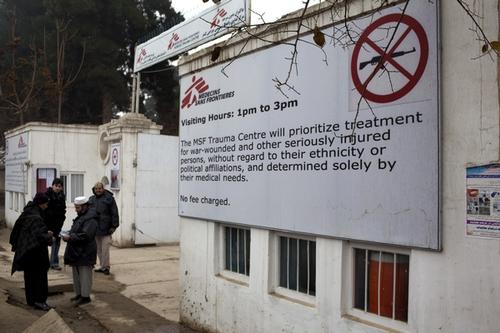Kabul/New York, 10 September 2012 — Following a major explosion today in the city of Kunduz in northern Afghanistan, more than two dozen people arrived at a surgical hospital run by the international medical humanitarian organisation Médecins Sans Frontières (MSF).
Thirteen people who suffered severe blast injuries were dead on arrival at the hospital.
“The explosion was close to the hospital, and the patients arrived within minutes,” said Anna Halford, MSF’s field coordinator in Kunduz. “Handling such incidents is a race against time.”
Fourteen people were stabilised, treated, and sent home, while nine were admitted to the hospital for further care. One person died in surgery. The majority of patients had blast-related wounds, including fractures, head trauma, and abdominal injuries.
“A key part of our response is launching a mass casualty plan immediately, which allows medical staff to rapidly identify and prioritise a patient’s medical needs based on a few vital signs,” said Halford.
MSF has been operating a surgical hospital in Kunduz since August 2011, providing emergency surgery and follow-up treatment for people wounded in the conflict and those suffering from life-threatening injuries. Hundreds of patients have been treated in the hospital since it opened.
In all locations where MSF works in Afghanistan, a strict no-weapons policy is implemented to ensure the safety and security of patients.
MSF teams also work in Ahmed Shah Baba hospital in Kabul and Boost hospital in Lashkargah, the capital of Helmand Province. In both locations, MSF works in all wards of the hospitals providing free medical care. MSF plans to re-open a maternity hospital in Khost Province after suspending activities there earlier in the year.
MSF does not accept any government funding for its work in Afghanistan. It relies solely on private donations.



